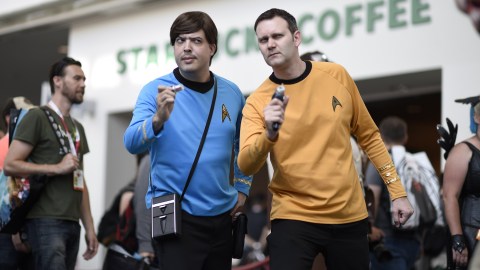Could We Build a ‘Star Trek’ Utopia?

I grew up on the Star Trek series, Captain Kathryn Janeway and Jean-Luc Picard exploring the galaxy and beyond. Unlike most sci-fi shows, Star Trek depicted a utopian future for humanity, but it wasn’t without its challenges. One idea that caught me was the lack of an economy. Indeed, the characters would often remark with a wink and a grin on how they’ve never handled money. Business in the Alpha Quadrant is rarely done — save for a few cultures that treat it like a religion. But is it really possible to have a society without an economy?
Author Manu Saadia is working on a book that looks at the hard challenges a Star Trek society poses, writing:
“How can it benefit all without depriving anyone? And what could that mean for us, the passengers of starship Earth?”
The advent of replicators in the Star Trek universe — devices that can create anything out of pure energy — made scarcity a thing of the past, and our society is close to such developments.
Singularity University’s Vivek Wadhwa believes that by the 2030s we should have secured unlimited energy, clean vehicles, mass-produced 3D-printed meat, and other mankind-bettering innovations. There’s no reason why scarcity should exist; there’s no reason why we can’t have our Star Trek utopia. However, there’s a human factor involved. Through these innovations, we’ll either see people stepping up to solve the world’s problems or creating more of them through greed.





